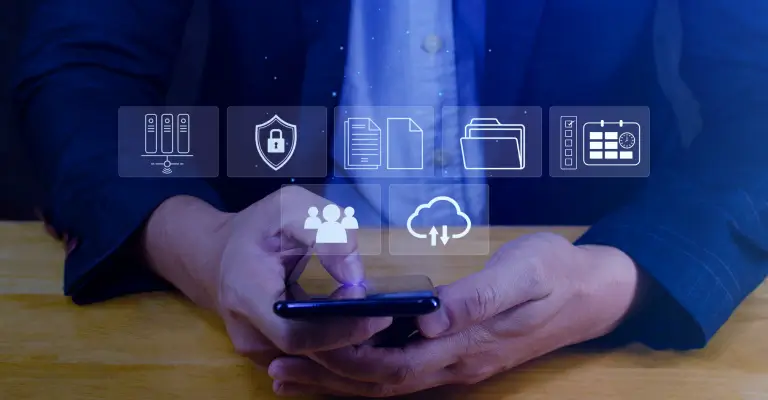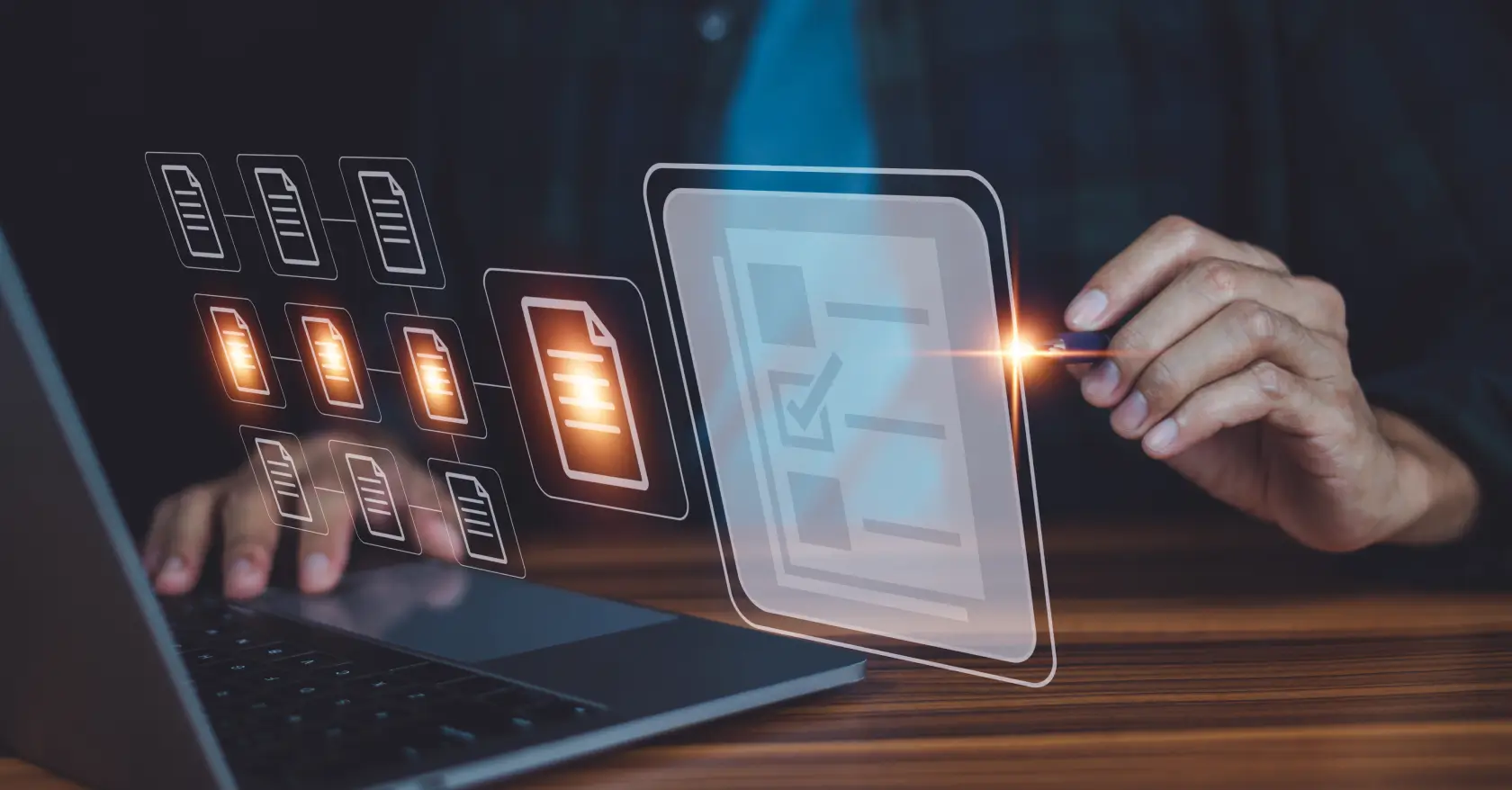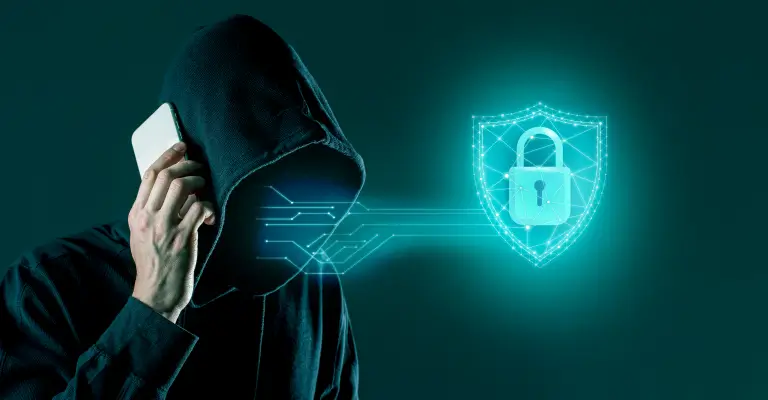Managing and verifying identities online has become more important than ever before. We often use various online accounts and services that require us to prove our identity.
While this process may seem quick and reliable, centralized identity systems have their own drawbacks. For instance, they are vulnerable to data breaches, and companies can sell our data without our knowledge or consent.
One recent example of the risks associated with centralized identity systems is the incident of scam calls to people in India after purchasing a new car. Many new car owners reported receiving calls from loan agencies and fake roadside assistance services. This clearly shows their personal information was leaked/sold due to the centralized identity system used in the process.
The same goes for the supply chain industry, where maintaining privacy is of utmost importance. A 2023 report shows that data breaches in the supply chain have increased by 26% from 2022 to 2023.
Thus, a decentralized identity is a modern solution that can tackle these problems. However, many individuals and businesses are unfamiliar with Decentralized Identity. So here, we are going to learn what decentralized identity is, how it works, its benefits, its importance for individuals, businesses, and developers, decentralized identifiers, how EveryCRED helps, and everything you need to know about it.
What Is Decentralized Identity?
Decentralized identity is a new model for managing digital identities where only you have full control over the identity and how it is shared – no central authority is involved. So, the basic idea is that you own and control your identity data, and you decide what information to share with whom. Your identity data is stored in a digital wallet, and you can selectively share this information with other parties as needed.
In a decentralized identity system, your identity will be represented with a decentralized identifier (DID), which is simply a unique string of characters. The DID cryptographically links back to you and resolves to a DID document containing your public keys, service endpoints, and other information about yourself.
Decentralized identities are verifiable: any person will be able to cryptographically verify that your identity belongs to you, without checking with any central authority. This is completed by means of verifiable credentials – digital, tamper-proof versions of traditional documents, for example, driver’s licenses or university degrees.
Key components of a decentralized identity system include:
- Decentralized identifiers (DIDs): Unique, cryptographically secured identifiers that are owned and controlled by the user rather than a central authority.
- Verifiable credentials: Digital, tamper-proof versions of physical credentials like driver’s licenses or diplomas that can be instantly verified.
- Digital wallets: Secure applications where users store and manage their DIDs and verifiable credentials.
- Blockchain: A distributed ledger that serves as an immutable, transparent record of identity transactions and credential issuance/verification.
By putting these pieces together, a decentralized identity creates a more secure, efficient, and user-friendly system for proving who you are online.
Check: Future of DID: Complete control over credentials with EveryCRED
How Do Decentralized Identities Work?
Here’s a simplified example of how this works in real life:
- Gourav generates a new DID and associated public/private key pair.
- He requests a verifiable credential (VC) from his university or institution for his degree.
- The college or university cryptographically signs the credential with their own DID and gives it to Gourav.
- Gourav stores the issued credential in his digital wallet.
- Now, when Gourav applies for a job, he gives this credential to the organization/employer.
- The organization can verify the credential by verifying it at the university’s public DID – no need to contact the university.
So, that’s how secure and easy to verify digital identities are.
Decentralized Identity vs. Centralized Identity
Understanding the benefits of decentralized identity requires comparing it to the centralized identity model.
Identity data is stored in a centralized system in one central database under the control of only one organization or authority, e.g., social media platforms, government agencies, and financial institutions. Any time a user might need access to some service, or he/she wants to prove his/her identity, he/she has to pass through that central authority acting as a gatekeeper and intermediary.
Here are the main differences between decentralized and centralized identity:
| Aspect | Centralized Identity | Decentralized Identity |
| Security | High vulnerability, single central database can be hacked | More secure; no single point of failure, uses blockchain and cryptography |
| Privacy | Users have little control over personal data usage and sharing | Users have full control over personal data |
| Failure Point | Single point of failure; entire system vulnerable if central provider fails or is hacked | No single point of failure; system remains operational even if some nodes fail |
| Interoperability | Siloed systems, difficult to interoperate with others | Built on open standards, enables easy credential portability and verification |
| Data Control | Managed by a central authority, users have minimal control | Full control by users; they decide what to share, with whom, and for how long |
Benefits of Decentralized Identity
Decentralized identity has different benefits for individuals, organizations, and society in general. Some of the main advantages are:
Security and Privacy
By design, decentralized identity systems are more secure and privacy-preserving than centralized ones because they put users in control of their data and eliminate central points of failure. Thus, it would let them share or show only what’s relevant in any particular interaction, not just hand over an entire identity.
Reduced Risk of Identity Theft and Fraud
It is considerably harder to steal or fake decentralized identities compared to traditional credentials. Every identity, being cryptographically bound to the owner, can be instantly verified on the blockchain. It is nearly impossible for anyone to create fake identities or impersonate real users.
Simplified User Experiences
Due to Decentralized Identity, a user will be in a position to access services and attest his credentials with just a few clicks. In contrast to creating different accounts and passwords for various services, as is the case most of the time, they can use their self-sovereign identity across multiple platforms. This reduces friction and improves conversions for businesses.
Increased Data Integrity and Trust
Since blockchain ledgers are immutable, decentralized identities are tamper-proof and verifiable. This raises the integrity level of such data compared to the integrity found in centralized databases, which privileged insiders could manipulate. Organizations can trust that the identity data they receive is accurate and up-to-date.
New Business Opportunities
Decentralized identity enables new business models and usecases that were previously not possible or applicable. For example, users could make money from their data by disclosing it to some advertisers or researchers. It will also provide an effective and more secure process alike for KYC compliance, supply chain tracking, and digital rights management.
It Improves Inclusion and Access
A decentralized identity can bring more people into the digital economy by providing them with a secure and verifiable identity. This becomes very important in developing countries where most of the population lacks official documents to identify themselves. Now, with a decentralized identity, anyone can prove his existence and get access to such basic services as banking, healthcare, and education.
The above-mentioned advantages show that decentralized identity really has the potential to transform. Letting users take charge of their digital identity data and enabling higher levels of security, efficiency, and inclusivity in interactions can reshape the digital landscape.
Also Read: Prevent Credential fraud with EveryCRED’s Blockchain Technology
Importance of Decentralized Identity for Users
Technical terms used while describing Decentralized Identity may make you feel like this is not for common users, but that’s not true. Here’s how important decentralized identity is for individuals:
- Personal Data Control: In decentralized identity, users have full ownership of their private information and, thus, are in full control over it. They get to know and decide on what data they will share with which entity for what purposes.
- Enhanced Privacy: Decentralized identity allows for selective disclosure of personal data. Users can share only the minimum necessary information for a given interaction rather than exposing their entire identity.
- Reduces Threat of Identity theft: A decentralized identity holds identity data in a secure, user-controlled digital wallet and uses cryptographic techniques to perform authentication, making it quite hard for malicious entities to steal or misuse personal information.
- User Experience: Decentralized identity ushers in passwordless authentication and makes life easier for users to keep track of many accounts and hundreds of credentials to various services.
Importance of Decentralized Identity for Businesses
Adopting decentralized identities can be advantageous for businesses and organizations. Here’s why it is important:
- Security: A decentralized identity system mitigates risks associated with security, as sensitive user data will not need to be compiled within stored databases.
- Less Compliance Burden: This facilitates compliance with, in particular, protection regulations, such as GDPR, since companies have lower amounts of personal data to collect and store.
- Earn Trust & User Engagement: Furthermore, increased control for the users over their own data and respect for privacy allow businesses to opt for trust as the keyway to build long-term relations of service/use consistent with high trust and user engagement.
- New Business Opportunities: Using a decentralized identity makes it easy to share data between businesses. This results in new opportunities for collaboration and services.
Related Article: 5 Reasons Every Industry Needs Decentralized Credential Issuer for Accreditation
Importance of Decentralized Identity for Developers
Decentralized identity opens up new opportunities to develop more secure, privacy-focused, and user-friendly applications for developers.
- Simplified Authentication: Decentralized identity allows developers to replace traditional, password-based authentication with cryptographically secure, passwordless login flows.
- Interoperability: Developers can ensure that applications developed using open standards for DIDs and verifiable credentials will be fully interoperable with other decentralized identity systems and services.
- Improved User Experience: Decentralized identity allows developers to design applications that put the user in control of the data, hence boosting trust and driving engagement.
- Access to Verified User Data: A developer can request and verify credentials under the user’s control, ensuring access to the end-user’s data that is both reliable and up-to-date without the need to store and manage it itself.
How EveryCRED Can Help?
EveryCRED is a platform that makes it easy for businesses to adopt decentralized identities. We provide tools for issuing, managing, and verifying credentials, all built on open standards.
Here’s how we can help businesses:
- Credential Issuance: EveryCRED provides an intuitive interface for designing and issuing verifiable credentials. Businesses can create custom credential templates, collect recipient information, and issue signed credentials with just a few clicks.
- Credential Verification: With EveryCRED, verifying a credential is as simple as scanning a QR code or clicking a link. Our verification service checks the cryptographic signature and validity of the credential and returns a clear pass/fail result.
- Integration: We also offer APIs that allow businesses to easily integrate credential issuance and verification into their existing systems and workflows.
- Compliance: EveryCRED’s platform is built on the W3C Verifiable Credentials standard. This ensures interoperability and compliance with modern industry standards.
For example, an agency needs to verify the qualifications of its contractors. With EveryCRED, it can:
- Request verifiable credentials from contractors, such as licenses, certifications, & work history
- Instantly verify provided credentials with EveryCRED’s verification service
- Store the verified credentials in its database for future reference
- Share specific credentials with clients to show the qualifications of their contractors
This would simplify the agency’s verification process, reduce fraud, and improve the trust and transparency of their placements.

 16th July, 2024
16th July, 2024 



